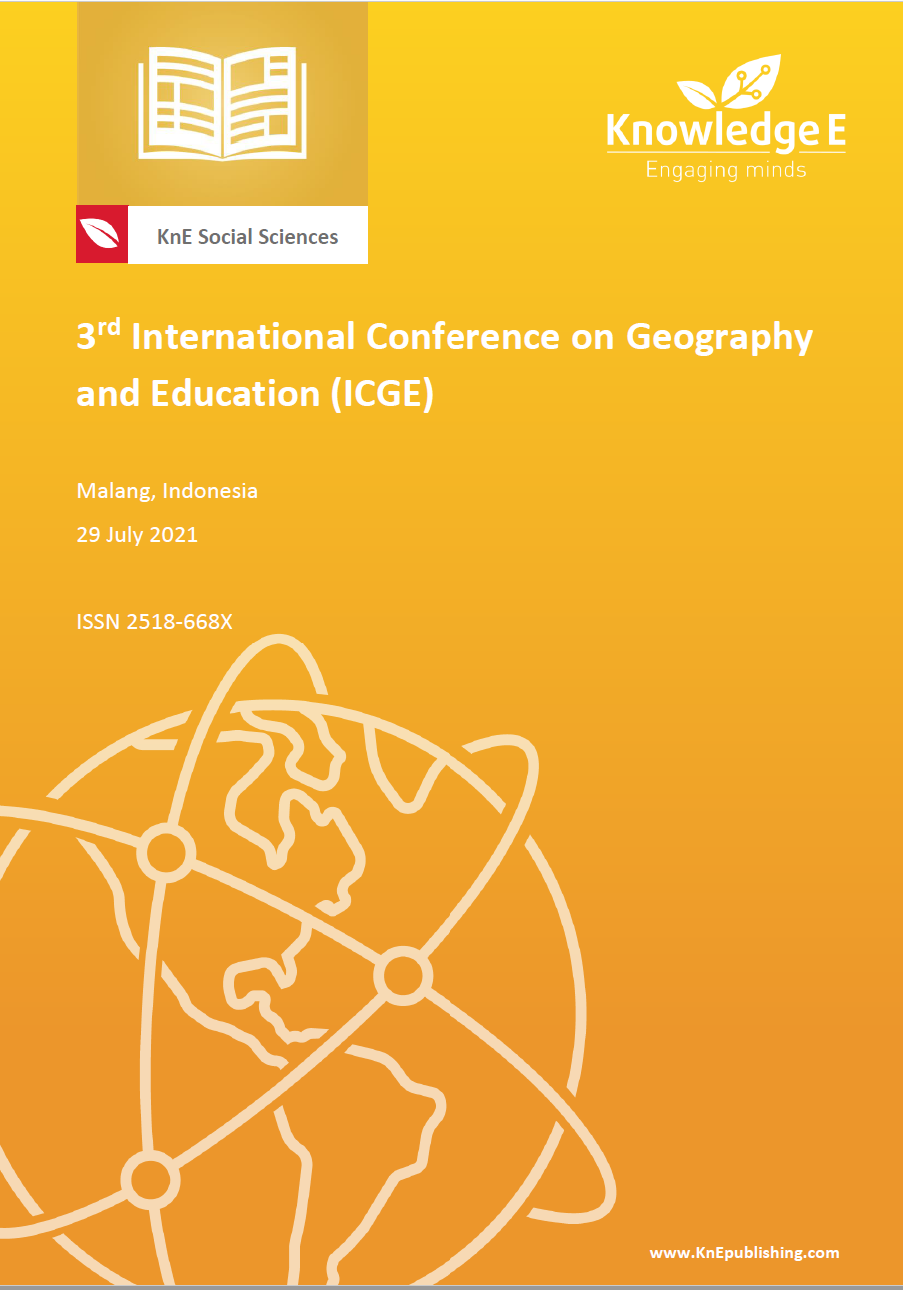Implementing Teacher Professionalism Training for Social Sciences Teachers
DOI:
https://doi.org/10.18502/kss.v7i16.12148Abstract
This research explored strategies for implementing teacher professionalism training (PPG) for social sciences teachers and was conducted at Semarang State University. This strategy was designed so that teachers would meet the standards of professionalism both inside and outside the classroom. This study used qualitative research methods. Data collection was conducted by observations, documentation analysis and interviews with participants in the process of implementing PPG for social sciences teachers at Semarang State University. The results of this study were: (1) intensive assistance in the participant’s mastery of the material was a major focus in the implementation of PPG training for social sciences teachers, in addition to developing the skills and ability of PPG participants; mastery of teacher competency skills, literacy skills and character building as professional teachers were the next strategies in implementing education; and some teaching materials were still improperly evaluated as they were not used as determinants of graduation assessments; (2) stakeholder involvement, including of professional organizations and/or external professional and relevant parties in the implementation of PPG, was crucial; and (3) the importance of establishing an academic forum by teachers participating in PPG to carry out seminars and discussions in order to hone knowledge and support professionalization was identified. Moreover, this research revealed the sustainability and usefulness of teacher professionalism in schools. Furthermore, teachers as PPG participants absorbed both the material and skills that were taught and thus could pass the performance test and knowledge test. The recommendations of this study are that every study program of a PPG organizer must always develop a PPG implementation strategy to produce professional teachers. As an input, professional teachers outside the campus are required as stakeholders for improving PPG implementation.
Keywords: profession, teacher, strategy, sustainability
References
[2] Raihani R, Sumintono B. Teacher education in Indonesia: Development and challenges. Athens: Atrapos editions; 2010. International handbook on teacher education worldwide; p. 181–97.
[3] World Bank. From preservice training to retirement: Producing and maintaining a high quality, efficient, and motivated workforce. Jakarta: World Bank; 2010.
[4] Kunandar K. Easy steps to research classroom action as teacher professional development. Jakarta: Rajawali Press/PT Raja Grafindo Persada; 2008.
[5] Mangkunegara AAAP, Puspitasari M. Kecerdasan emosi guru, stres kerja, dan kinerja guru SMA. Jurnal Kependidikan: Penelitian Inovasi Pembelajaran. 2015;45(2):142- 155.
[6] Rahman A. Teacher professional development in Indonesia: The influences of learning activities, teacher characteristics and school conditions [Doctoral dissertation on the Internet]. Wollongong: University of Wollongong; 2016 [cited 2021 Jan 17]. Available from: https://ro.uow.edu.au/cgi/viewcontent.cgi?article=5734&context=theses
[7] Pemerintah Republik Indonesia. Undang-undang Republik Indonesia Nomor 14 Tahun 2005 tentang guru dan dosen. Indonesia; 2005.
[8] Republik Indonesia. PP No. 17 Tahun 2010 tentang Pengelolaan dan Penyelenggaraan Pendidikan. Indonesia; 210AD. Available from: https://peraturan.bpk.go.id/Home/Details/5025/pp-no-17-tahun-2010
[9] Hamalik O. Learning process. Jakarta: PT. Bumi Aksara; 2006.
[10] Pangestika RR, Alfarisa F. Pendidikan profesi guru (PPG): Strategi pengembangan profesionalitas guru dan peningkatan mutu pendidikan Indonesia. Prosiding Seminar Nasional; 2015 May 19; Indonesia.
[11] Avalos B. Teacher professional development in teaching and teacher education over ten years. Teaching and Teacher Education. 2011;27(1):10–20.
[12] Darling-Hammond L, Hyler ME, Gardner M. Effective Teacher Professional Development. Washington, DC: Learning Policy Institute; 2017 Jun 5. Available from: https://learningpolicyinstitute.org/product/effective-teacher-professionaldevelopment- report
[13] Kementerian Pendidikan dan Kebudayaan. Naskah Akademik Pengembangan Kurikulum Lembaga Tenaga Kependidikan (LPTK). Jakarta: Direktorat Belmawa, Ditjen Pendidikan Tinggi Kemendikbud; 2013.
[14] Wahyudin D. Manajemen kurikulum dalam pendidikan profesi guru (Studi kasus di Universitas Pendidikan Indonesia). Jurnal Kependidikan: Penelitian Inovasi Pembelajaran. 2016;46(2):259–70.
[15] UNESCO. Guidelines and recommendations for reorienting teacher education to address sustainability. Paris: Division for the Promotion of Quality Education, UNESCO; 2005.
[16] Ningrum E. Membangun sinergi pendidikan akademik (S1) dan pendidikan profesi guru (PPG). Jurnal Geografi Gea. 2016;12(2):49-55.
[17] Kementerian Pendidikan Nasional Republik Indonesia. Peraturan Menteri Pendidikan Nasional RI No. 20 Tahun 2007 tentang Standar Penilaian Pendidikan [Internet]. Indonesia; 2007. Available from: https://drive.google.com/ file/d/0B18mXGGKnIqvai1nalN3ZzJuZXM/view?resourcekey=0-pdh34eFlJk0gpgngEL9wg
[18] Gufron A. Curriculum development of PPG. Yogyakarta: Universitas Negeri Yogyakarta; 2010.
[19] Murdiyanto T. Persepsi peserta PPG dalam jabatan terhadap pelaksanaan program PPG hybrid learning bidang studi matematika Universitas Negeri Jakarta Tahun 2019. Jurnal Riset Pembelajaran Matematika Sekolah. 2020;4(1):76–84.
[20] Arikunto S. Manajemen penelitian. Jakarta: PT. Rinneka Cipta; 2006.
[21] Kementerian Riset, Teknologi dan PTRI. Peraturan Menteri Kementerian Riset, Teknologi, dan Pendidikan Tinggi Republik Indonesia Nomor 55 Tahun 2017. Indonesia; 2017.
[22] Stanley T, Moore B. Critical thinking and formative assessments: Increasing the rigor in your classroom. United Kingdom: Routledge; 2013.
[23] Kartowargiran B. Uji kompetensi dalam PPG. Workshop Penyusunan Soal Uji Kompetensi dalam PPG, Universitas PGRI Yogyakarta. 2010. p. 30–1.

